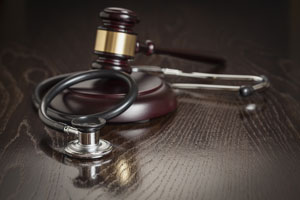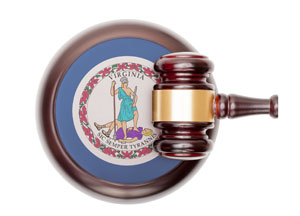The Virginia Supreme Court recently made two rulings about expert witness testimony in a medical malpractice appeal. The more significant ruling points to the need for an expert’s opinion to be grounded in facts rather than assumptions.
Facts of the Case
Dr. James Lee is an otolaryngologist. He treated Adam Traisch for sleep apnea. In the course of that treatment, Dr. Lee performed a tonsillectomy and an adenoidectomy. Adam was discharged from the outpatient procedure and went home.
That afternoon, Adam’s mother gave Adam his prescribed pain medication and Adam took a nap. Thirty minutes later, his mother was unable to rouse him. Adam was rushed to a hospital where he was pronounced dead.
The pathologist who conducted Adam’s autopsy attributed his death to cardiac arrhythmia. Adam’s heart appeared to be normal and the pathologist could not identify the cause of the arrhythmia. The autopsy report stated that a genetic disorder could not be ruled out, given that Adam’s parents were first cousins.
Adam’s mother sued Dr. Lee, alleging that Adam was at risk of respiratory failure after the operations in light of Adam’s severe obstructive sleep apnea. Adam’s mother contended that Dr. Lee violated the appropriate standard of care by failing to order that he be monitored overnight following the surgery.
A jury found in favor of Dr. Lee. Adam’s mother appealed to the Virginia Supreme Court, contending that neither Dr. Lee’s expert witness nor Dr. Lee should have been allowed to provide expert opinions.
Dr. Boyd’s Testimony
At trial, Dr. Lee contended that Adam died from Brugada syndrome, a rare hereditary condition that creates a high risk of death from sudden ventricular arrhythmia. He also contended that he had no reason to suspect that Adam had Brugada syndrome because he was not told about Adam’s genetic history, including the fact that his parents were first cousins or that two of Adam’s siblings had also died.
To establish that defense, Dr. Lee offered the testimony of Dr. Simeon Boyd, a pediatric geneticist. Dr. Boyd testified that he relied on a “differential diagnosis” to conclude that Brugada syndrome caused Adam’s death. A doctor makes a differential diagnosis by considering all possible causes of a medical event and then ruling out all but one.
Dr. Boyd also relied on Adam’s developmental delay and “dysmorphic facial features” as evidence that he suffered from a genetic disorder. In addition, he relied on a DNA analysis that revealed a variation in one of Adam’s genes to bolster his opinion that Adam died from cardiac arrest due to Brugada syndrome.
Basis for Dr. Boyd’s Opinions
The Virginia Supreme Court noted that Dr. Boyd was not a forensic pathologist, a toxicologist, a cardiologist, or an otolaryngologist. When he was asked on cross-examination whether postoperative respiratory compromise could have caused Adam’s death, Dr. Boyd said that he was not qualified to express an opinion. When asked how he could rule out a cause of death in his differential diagnosis that he was not qualified to diagnose, he explained that he relied on the expert opinions of others.
The plaintiff’s attorney argued that Dr. Boyd’s determination of the cause of death rested upon a differential diagnosis that he was not qualified to make. Dr. Lee’s attorney argued that Dr. Boyd was entitled to consider the opinions of others because Virginia follows the prevailing rule that permits experts to rely upon data that might otherwise be inadmissible as evidence if it is the kind of data upon which experts in a field normally rely.
Dr. Boyd testified that he relied on the autopsy report to rule out respiratory compromise as a cause of death. While acknowledging that autopsy reports are the kind of data that a doctor might rely upon in forming an expert opinion, the Virginia Supreme Court noted that the autopsy report concluded only that Adam died of cardiac arrhythmia of unknown origin. That opinion did not rule out respiratory compromise as a cause of the cardiac arrhythmia.
Given that the expert witness called by Adam’s mother testified that respiratory compromise can cause cardiac arrhythmia and that no expert relied upon by Dr. Boyd disagreed with that opinion, Dr. Boyd had no basis for his decision to rule out respiratory compromise as a cause of Adam’s death. His differential diagnosis was therefore based on inadequate data and should not have been admitted as evidence.
Dr. Casolaro’s Opinion
The jury also heard the testimony of Dr. Mario Casolaro, an expert in pulmonary medicine. Dr. Casolaro expressed the opinion that respiratory compromise did not cause Adam’s death.
While Dr. Lee argued that Dr. Casolaro’s opinion provided the missing link in Dr. Boyd’s differential diagnosis, the Virginia Supreme Court noted that Dr. Boyd made his differential diagnosis before Dr. Casolaro was deposed. Dr. Lee had no way of knowing about Dr. Casolaro’s opinion and did not mention Dr. Casolaro during his testimony. The court therefore rejected the argument that Dr. Lee had an adequate factual basis for his differential diagnosis.
Dr. Lee’s Opinion
Virginia follows the usual rule that a doctor who is sued for malpractice is permitted to testify as an expert in his own defense. However, Dr. Lee was not designated as an expert witness, and was therefore permitted to give only lay testimony.
Dr. Lee testified that he was not told that Adam’s parents were cousins or that Adam’s siblings had predeceased him. Dr. Lee said that he would not have recommended surgery if he had been aware of the possibility that Adam carried a genetic defect.
The plaintiff’s lawyer argued on appeal that Dr. Lee’s testimony was in the nature of expert testimony and was improperly admitted because he was not designated as an expert. The Virginia Supreme Court disagreed. Dr. Lee’s testimony about what he would have done if he been given more information did not require the expression of an expert opinion.
What the doctor would or would not have done was a fact, and lay witnesses are permitted to testify about facts that are within their own knowledge or experience. If Dr. Lee had explained why he would not have recommended surgery for someone with a genetic defect, he might have been offering expert testimony, but he did not cross that line.
New Trial Ordered
The trial court erred by admitting Dr. Boyd’s testimony, but not by allowing Dr. Lee to testify about what he would have done if he had known Adam might have a genetic defect. Since Dr. Boyd should not have been allowed to testify, the Virginia Supreme Court reversed the judgment and ordered a new trial.





